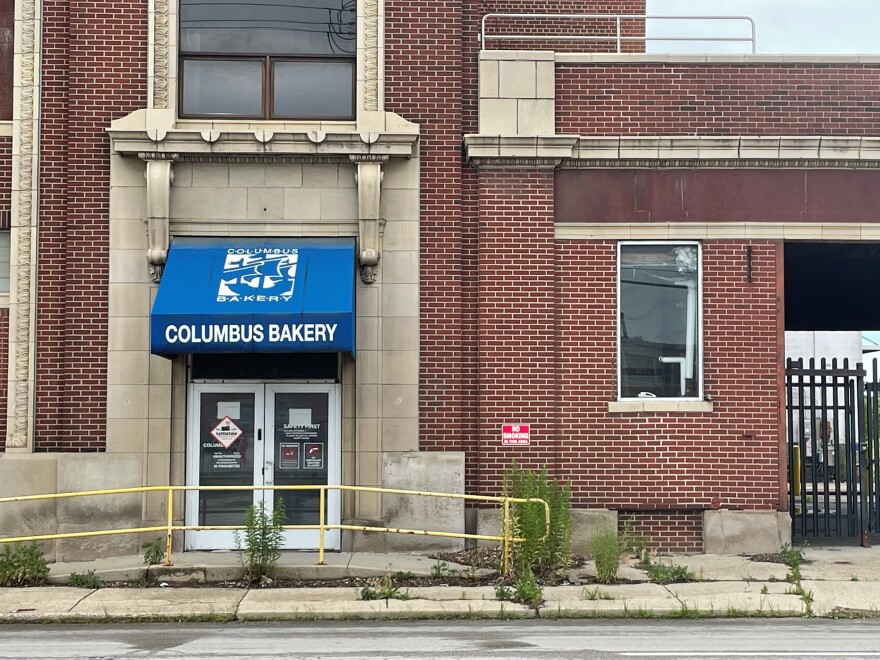Like most other cities, Columbus has its share of brownfields. Those are polluted plots of land, often old factories, that need restored to their original state before they can be re-developed. There’s a nearly $200 million effort to remediate more than 100 brownfields in Ohio, including eight here in Franklin County.

For five decades, Buckeye Autoparts has operated salvage yards on the banks of the Scioto River near the Hilltop. It’s a 50-acre plot that’s long been home to broken down and wrecked vehicles, and before that, a landfill.
Now, developers want to transform it into 750 multifamily homes, with affordable housing options and a 12-acre park. Thrive Companies, in partnership with Columbus City Council, applied for a $10 million grant from the Ohio Brownfield Remediation Program in January. It won the grant last month.
Michael Amicon is the company’s vice president of development.
“Brownfield sites are extremely complex and very nuanced," he said. "There’s no doubt that without this grant, we would not be able to do anything with the site.”
A brownfield is an industrial or commercial property that’s abandoned, idle or underused with known or potentially hazardous materials on site. The one-time state remediation program was funded with $350 million in the 2021 state budget. So far, $252 million have been awarded to almost 200 projects in the state.
Lydia Mahalik is the director of the Ohio Department of Development.
“The program is set up to clean up properties that are blighted and hazardous in communities across the state," she said. "It really helps make these properties come back to life.”
State funding for programs like it disappeared for nearly a decade when the Ohio Remediation Fund was closed in 2013.
“One of the problems with these properties, they have contaminants in them that are really cost prohibitive," Mahalik said.
Properties like the McKinley Avenue scrapyard are littered with metal, construction and industrial wastes. The grant will be used to clean up the brownfield and demolish four buildings on the property. The former landfill will be cleared, graded and capped.
Amicron said Thrive has several community meetings planned in July to move forward with the project before they set up a formal remediation process with the city.
“We have to go through our zoning," he said. "We have our first batch of meetings with the West Scioto Area Commission. From there we’ll go through the neighborhood commissions and then a formal process with the city of Columbus.”
In a resolution to support the developers in January, the city council wrote, “by connecting more people to nature and natural resources, Westbend hopes to cultivate an area for residents and guests to live, work and play.”
Mahalik said these types of redevelopments are common in the new remediation program.
“I would say the majority of them are being utilized for housing, or space to put new businesses or new industry but it’s totally up to the communities,” she said.
Another Franklin County project getting state remediation money is the redevelopment of the historic Kroger Bakery on Cleveland Avenue, near I-670. It closed in 2019 after 90 years of operation. The factory once produced 2,400 pounds of bread per hour and 43,000 crackers a day.
It housed a Ford Model-T assembly plant in the early 1900s before Kroger took it over. The sites are contaminated with asbestos.

A group of three developers called Half Baked LLC, Casto, Robert Weiler, and Kelly Companies received $4.7 million in grants to clear out asbestos, conduct demolition and move materials offsite. Bryan Sobacz is president and CEO of Casto.
“So, the majority of that is related to those hazardous materials, the work associated with getting them off the building and out of the ground,” he said.
The 10-acre property will become mixed-use office space, 364 apartments, shops and restaurants. Sobacz expects a 90 day cleanup effort to start at the end of September.
“We’re getting closer to making the project a reality, we’ve got a couple other things we still have to button up,” he said.
Half Baked LLC expects construction to finish by 2025.
Advocacy groups like The Greater Ohio Policy Center, a non-profit, non-partisan advocacy group pushed for a return to brownfield programs after the revitalization fund closed.
Jason Warner is the director of strategic engagement for the group. Warner said the benefit of these programs allow communities to reuse industrial spaces instead of green spaces.
“The last thing we want to see is a further erosion of those type of properties," he said. "We see more sprawl; the city is growing outward and outward. Meanwhile, there is plenty of property that is available, we’ve just got to figure out ways to reactivate it."
Here is a list of all the state projects to receive grant funding in June. Franklin County projects can be found on pages 14-16.
PDF of Franklin County Projects, their contaminants and money]
The remediation program has about $100 million in grants left. After that, the future of state funding for brownfields is unclear. Eric Clapper is the manager of outreach and projects at the Greater Ohio Policy.
“This, of course, was a one-time, $350 million allocation for the grant program, but looking ahead to the future, brownfields will continue to exist and brownfields redevelopment will continue to provide a strong impact for communities,” Clapper said.
The Ohio Department of Development expects to release another batch of grants in July for projects across the state.




